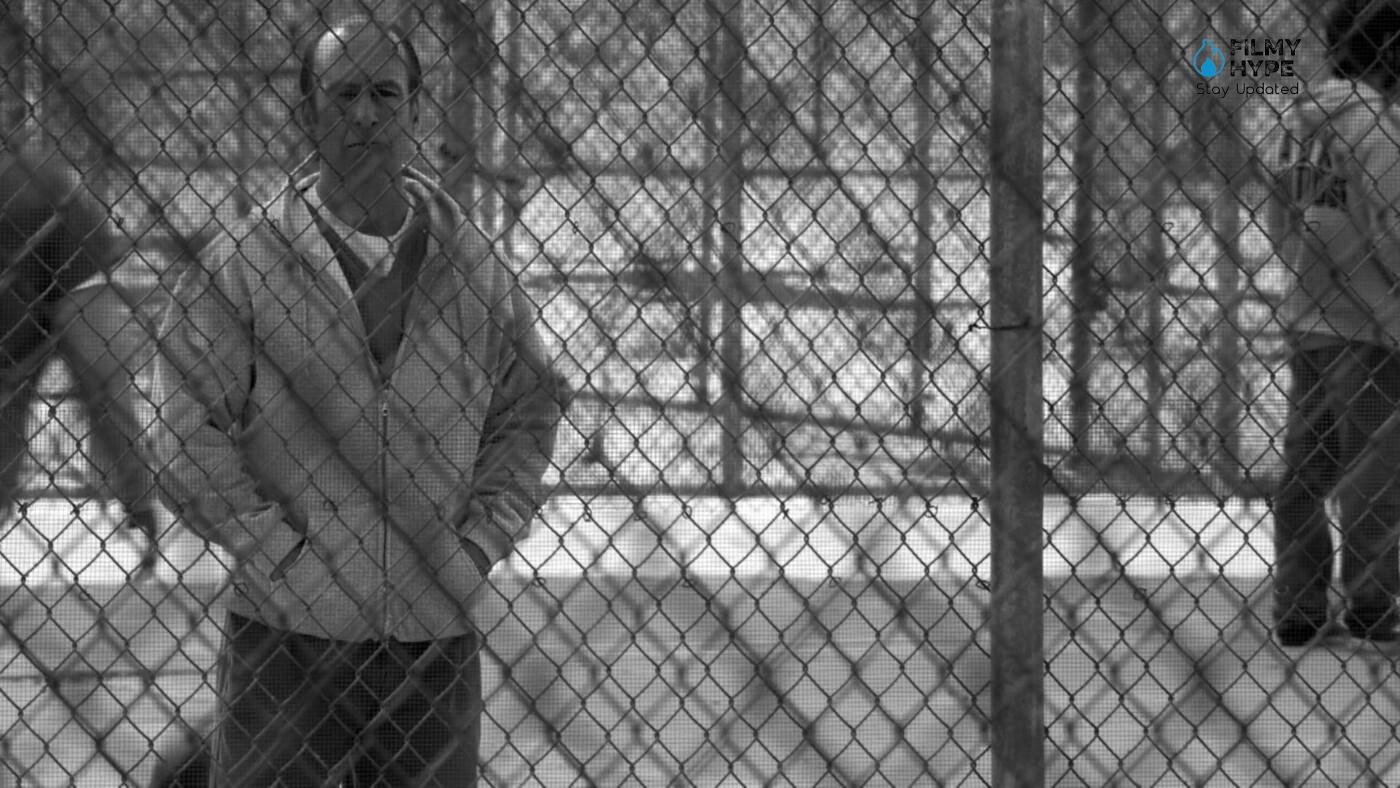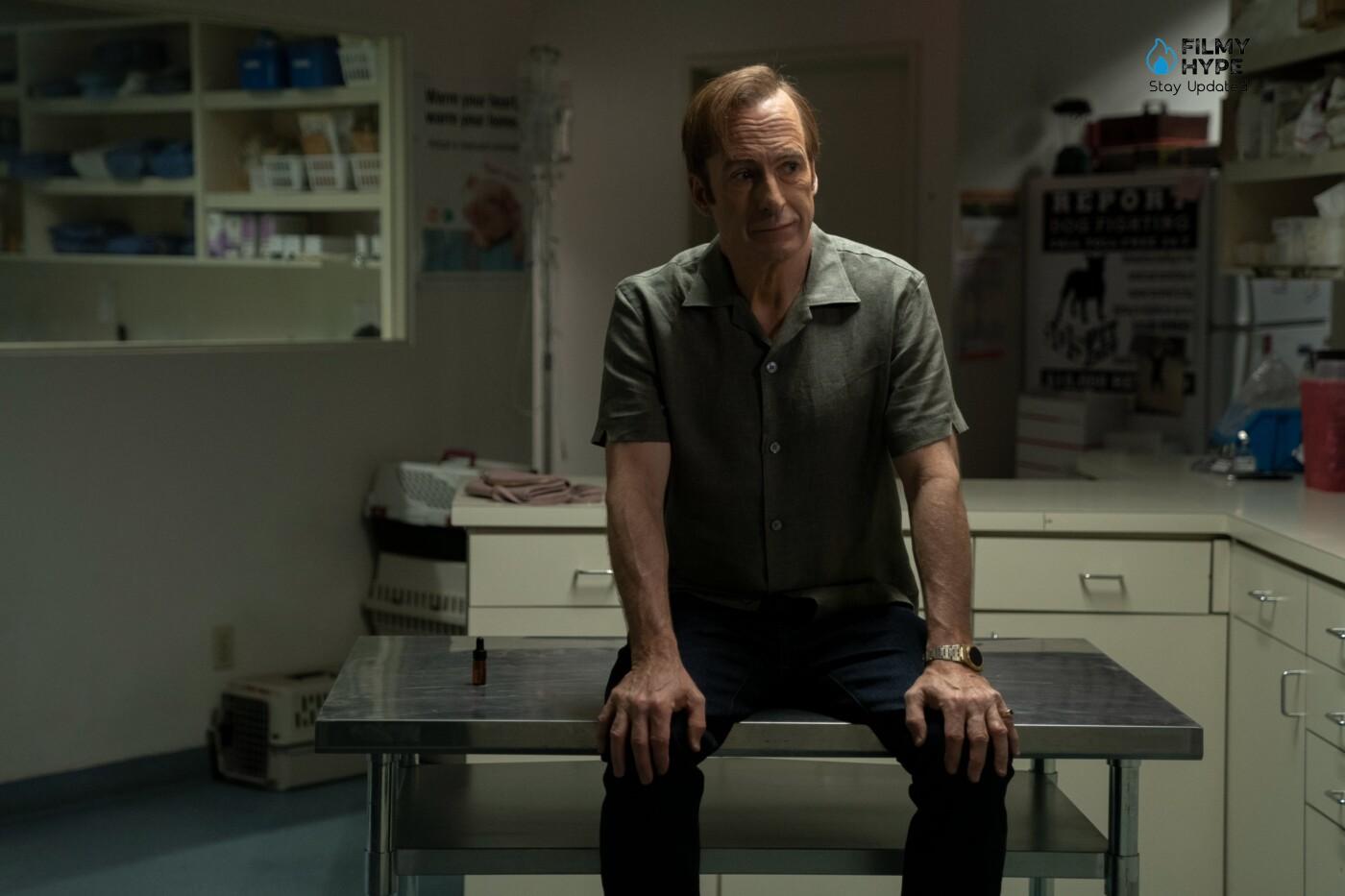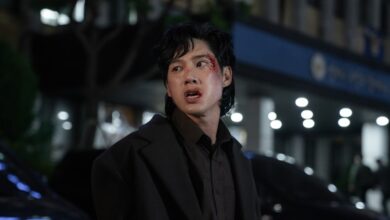Better Call Saul Season 6 Episode 13: Ending Explained! Goodbye Saul, Goodbye Jimmy: This Was The Epic Ending
This Tuesday the final chapter of Better Call Saul was released, a story full of emotions that had a closure for the history of the series and also of its predecessor, Breaking Bad.
Better Call Saul Season 6 Episode 13 Ending Explained: It was in 2015 when the first season of Better Call Saul premiered, a spin-off from the world of Breaking Bad, the successful series by Vince Gilligan and Peter Gould; and that under the same creators they now ventured with a new production starring Walter and Jesse’s lawyer, Saul Goodman. A story that began cautiously in Jimmy McGill’s first steps as a lawyer and how he would sooner or later become Goodman.

With a variety of new characters that undoubtedly won the hearts of fans, such as Kim Wexler with a surprising Rhea Seehorn, or the returns of Gustavo Frings and Mike Ehrmantraut; the new creation of the world of Breaking Bad not only managed to sustain itself solidly without depending on its “sequel” but in a more modern world dominated by streaming, it positioned itself as one of the best TV series of the century and with an ending worthy of it. Attention! Below are spoilers for the latest episode, 6×13, of Better Call Saul. If you haven’t seen it yet and don’t want to find out, don’t keep reading.
Better Call Saul Season 6 Episode 13: Ending Explained!
Until the end of Saul Goodman came, and emotionally for the character of Bob Odenkirk. After Marion called the police to reveal that Saul was at her house, it didn’t take long for him to be caught by the police. In a quick negotiation that featured the first of the episode’s Breaking Bad cameos, Hank Shrader’s (Dean Norris) widow, the charismatic Marie Shrader (Betsy Brandt); It seemed that Goodman was going to get away with it again and manage to lower her sentence to only 7 years.
But one detail changed all of Saul’s plans, in the previous episode Kim Wexler had a catharsis and confessed how Howard Hamlin died. Despite the lack of evidence, Kim’s future looked complex with the possibility of a civil lawsuit and losing everything she had. Without telling us Saul’s plans, Saul had his audience and when we thought he was going to tell a story full of lies to get away with it, he told the truth of his ambition and guilt to associate with Walter White, basically all his crimes.
And the episode is just that, a confession by Jimmy McGuill about who Saul Goodman was and all the crimes and mistakes he felt guilty about and could never confess to, including the tragic end of his brother Chuck. The mere fact that Kim was in danger convinced the protagonist to spoil the deal he had to confess just as Wexler had done so that both of them would finally get rid of Howard’s death, regain the respect of their great love, like the crimes committed now by Jimmy McGill, who said goodbye to Saul and asked to be recognized by his name again.
The protagonist had lied about how involved Kim was just so that she would attend the hearing and listen to his lesson, which had at least the smile of his ex-wife in approval. The ending had Jimmy going to prison and serving a sentence of over 80 years, albeit with the respect of his fellow inmates upon learning of his past defending criminals. The emotionality carried over into the last few minutes of the episode, with Kim visiting McGill in prison and having a cigarette together, just as they did several times in the beginning after a tiring day.
What Does The Ending Of Better Call Saul Season 6 Mean?
The series ended as it began, and with both in a kind of reconciliation, with Kim leaving prison before Saul who saw her walk away to close a chapter perhaps not with so many emotions, but with a kind of tranquility for the paths of both protagonists. The episode titled “Saul Gone” also featured cameos from Jimmy’s brother, Chuck (Michael McKean), and one last return from Bryan Cranston as Walter White. Both, together with another appearance by Mike, witnessed how Saul evaded showing regret for his misdeeds, or guilt for his actions, which he was finally able to reveal before the judge and Kim. With Mike and Walter, reference was made to what they would change from the past, but Saul never wanted to reveal what he really would change.

In the end, we see a flashback of him leaving food for his brother Chuck and having one more conversation about the path Jimmy was taking. Is that the moment that he would have changed? To listen to his brother and be a typical and honorable lawyer? This is how Better Call Saul closed, a series of sublime quality as much as Breaking Bad, but with both aesthetic details and depth of the characters that contributed much more than just being a spin-off. With a Bob Odenkirk and a Rhea Seehorn who graduated as great actors, and a production that has saved a place in the best series in history, fans can finally say goodbye after 7 years and say goodbye to Saul Goodman, goodbye to Jimmy McGuill and goodbye to Better Call Saul.
The End Of Saul
That our beloved Saul Goodman was long gone was not only demonstrated by the new life under the name of Gene Takavic, manager of a Cinnabon store in a shopping center. Even when the call of scams, in the company of Jeff and Buddy, became too strong to be ignored, our protagonist did not seem the easygoing and likable neighborhood lawyer, but a real criminal, all too sure of himself. In the previous episode, two moments marked a real break with the public, who struggled to find the personality he loved after all. The first is when Gene escapes from the house of the scammed cancer patient and is tempted to make his way by hitting the victim’s head with the vase containing the dog’s ashes. The second, much more serious, when he rolls the telephone cord around his hands, as if ready to cruelly strangle old Marion, who had discovered her true identity. Two moments that frankly and directly communicated to the audience that Saul was dead.
Except then briefly return to this final episode. From the moment he telephones the lawyer Oakley we recognize Saul’s voice, his tone dismissive of danger and self-confident. We see it in his attitude, in the way he seems to have the reins of history and his destiny back, as he enters a deal with the prosecution to avoid a life sentence and 190 years in prison. And, although depicted in a sad, pale black and white, he is understood by the bright colors of the clothes he wears during the trial, in which he wants to continue to be called Saul Goodman. Because, at that moment, “it’s all good, man“. But it is yet another proof of an actor by a person who is now tired of acting.

With a real coup de theater Jimmy takes off Saul’s clothes and chooses to change direction in his life. He kills his most famous character and decides to end a farce that seemed to have lasted too long, to the point of distorting it. Left completely alone (the fading between the sitting man and the desolate landscape is exceptional, as an image can describe a whole character and his reality), now Jimmy can only accept the consequences of his actions, take off his mask and go back to being simply the fallible (if not unsuccessful) man James McGill.
Change Direction
Overriding thematic element in this episode, James’s choice of this change of direction appears to be a closure of a circle that has been postponed for too long. And, once again, the heart of the change comes through that character who has always been a beacon for everyone: brother Chuck. A scene seen in the first episodes of the series is thus resumed, when Jimmy appeared as a misunderstood simple man who could not feel redeemed for past mistakes and find his way, expressing his true value.
In a series that, especially in this second half of the season, seemed to lead the characters towards a single possible narrative, a single direction (and how good are Gilligan and Gould at building stories of this kind, where, when certain events happen, everything takes an unstoppable turn and the fate of the characters seems inevitable, however much they may try to avoid it), the sudden change of Saul, who, after having messed up the expected process, proudly accepts his responsibilities by saying ” The name he’s James McGill ”is both an epiphany for the character, the long-awaited individual turning point, and paradoxically the most natural conclusion to his story.
It took some time to listen to that advice uttered by his brother, almost an unheard ghost (the last image, blurred, seems to give Chuck a characterization of a guiding spirit, vanished in memory and suddenly reappeared), but Jimmy listened to him, accepting the fact, subliminally, that Chuck, Howard and his other “adversaries” of yore had always been right. Everything that seemed a hate relationship between brothers was a bond of love made up of misunderstandings, remorse, and incommunicability. And just as Jimmy would have wanted a time machine so much, so too quietly his brother shared this impossible desire. Maybe to fix things. Perhaps to prevent history from taking that direction.
It Was Just A Matter Of Time
Twice we see similar dialogues in this episode, which are about the possibility of having a time machine. The first, during the long walk in the desert with Lalo’s money, is a conversation that takes place between Mike and Saul. Two characters who, in the course of the series, have seen their parallel stories cross a couple of times, but who represent the same tragedy: that of a man who wants to do good and is devoured, due to his mistakes, in a deeper and deeper spiral of underworld. For Mike, the moment he started it all was the first bribe, the first crack in a hard work ethic. The second, on the other hand, has as its protagonist Walter White, who would travel in time to prevent his exit from Gray Matter Technologies, the company he had created and which made his former friends billionaires, colleagues, and partners. But it is the protagonist of Breaking Bad who, even in a slightly piqued way, sheds light on Saul’s eyes, telling him that instead of a “time machine” we should be more honest and call things by their name regrets.
And, in hindsight, Jimmy’s story is a story steeped in regrets and memories of a lost time constantly pursued. It was when he was trying to find that youthful complicity with Marco, it was when in the role of Gene he felt the thrill of being “the best” again, even behaving like a child who never grew up trying to make Kim feel guilty for leaving him, and therefore of having lost that idyllic time made up of old movies on TV and complicity, even sexual. The whole series uses time as a metaphor for Jimmy’s story. From the very first episode, the pauses to give space to advertising (in America the series was broadcast on the AMC channel), those sudden cuts to black, seemed to cut the scene at the wrong moment (always a moment earlier than expected).
The same happened during the opening, which over the seasons has become more and more ruined as if we had reached the end of the magnetic tape of an old videotape, until the last episodes in which the tape, now demagnetized, has reached the end. Interrupted time, inside and outside the story, which defined the lack of fluidity and therefore serenity. Rather than going back in time or rewinding a single tape, Jimmy’s story is a story of fragments, like the stories he tells to be believable, each broken and shattered, giving life to a life of accumulating regrets. This also happens in the final shot, with the prison wall closing like the curtains of a curtain in a definitive way one-man show by Jimmy McGill. Also, in this case, there is no space for a minimum of breath: the series ends as soon as the human figure disappears, almost a moment before what we would like.
The Last Glimmer Of Color
It is a world in black and white where the story of the protagonist ends. A black and white that contrasts with the hyper-colored world of the series, which best represented Saul’s bold and confident character. The present, in which we witnessed Gene’s life, is too monotonous (and monochromatic), the past is represented in color, like a world that now belongs to happy memories of the “good old days”. We saw it in the last episode, as Gene’s glasses reflected Saul Goodman’s commercials, small projections of a time fixed in his memory.

The last glimmer of color in the series is in the tip of the lit cigarette that Kim and Jimmy smoke inside the prison room. Precisely in that habit belonging to the past, in that inspired smoke that had built the couple, we find the innocence and normality of two lives changed by the clash and actions. If there was a time machine, this would be the lit cigarette. It is a bittersweet ending for Jimmy, who in any case does not disdain that optimistic temperament side when talking about a discount on the sentence for good behavior, and Kim, now able to face a new life and start over (she too finally comes to terms with the weight of the past).
Then there is a last note of color, although not visual. Like a great actor, Jimmy will also be remembered for his most famous and celebrated interpretation of him, that of the lawyer Saul Goodman, who, net of his borderline being with the law, was still able to help and defend other people. And this is how he is cheered on by the other inmates on the way to the prison. Despite everything, Jimmy has managed to become a reference figure in his profession, even if those who cheer him are not exactly the type of clients, he could have at HHM. It is the virtual applause that Jimmy takes, the call to the limelight to which he is forced, initially even reluctantly, to bow.





